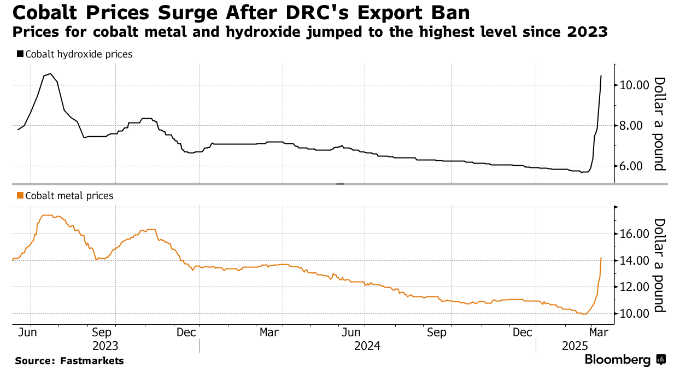Creatine For Athletes: Benefits, Risks, And Best Practices

Table of Contents
The Benefits of Creatine for Athletes
Creatine monohydrate is a naturally occurring compound found in muscle tissue that plays a vital role in energy production during high-intensity exercise. Supplementing with creatine offers several compelling advantages for athletes across various disciplines.
Increased Strength and Power
Creatine supplementation leads to increased muscle phosphocreatine stores, crucial for short bursts of high-intensity exercise. This increased energy availability directly translates to significant improvements in strength and power output. Numerous studies show substantial gains in:
- Weightlifting: Bench press, squat, deadlift performance often see marked improvements with creatine supplementation.
- Sprinting: Creatine can enhance speed and power output in short sprints, leading to improved times.
- Plyometrics: Explosive movements like box jumps and jump squats benefit from the increased energy provided by creatine.
This improved strength and power translates to better performance in various sports, including bodybuilding, powerlifting, weightlifting, track and field, and even some team sports requiring bursts of intense activity.
Enhanced Muscle Growth and Hypertrophy
Beyond strength and power, creatine also plays a significant role in muscle growth and hypertrophy. It achieves this through several mechanisms:
- Increased Muscle Protein Synthesis: Creatine helps to stimulate muscle protein synthesis, the process by which your muscles build and repair themselves.
- Improved Muscle Hydration (Cell Volumization): Creatine draws water into your muscle cells, leading to increased cell volume. This "cell swelling" is believed to stimulate muscle growth.
- Enhanced Anabolic Environment: Creatine creates a more favorable environment for muscle growth by increasing the availability of energy for muscle protein synthesis.
The result is increased muscle mass and a more defined, fuller appearance. This is particularly beneficial for athletes focused on building muscle size and strength.
Improved Exercise Capacity and Recovery
Creatine's benefits extend beyond just strength and muscle growth; it also significantly improves exercise capacity and recovery:
- Delayed Muscle Fatigue: Creatine helps to buffer against lactic acid accumulation, a major contributor to muscle fatigue during high-intensity exercise.
- Faster Recovery Between Sets/Workouts: Athletes often report quicker recovery times between sets and workouts, allowing for more intense training sessions.
- Increased Training Volume: The improved recovery allows athletes to train harder and more frequently, leading to greater overall gains in strength and muscle mass.
Potential Risks and Side Effects of Creatine
While creatine generally offers significant benefits, it's crucial to be aware of potential side effects. Most are mild and temporary, but some require attention.
Water Retention
Creatine can cause temporary water retention, leading to a slight increase in body weight. This is primarily due to creatine's ability to draw water into muscle cells. While not inherently harmful, it may be a concern for athletes in weight-class sports. Proper hydration management can help minimize this effect.
Gastrointestinal Issues
Some individuals experience mild gastrointestinal discomfort, such as nausea, cramping, or diarrhea, especially when initially starting creatine supplementation. Starting with a lower dosage and gradually increasing it, along with consuming creatine with food, can often mitigate these issues.
Kidney Issues (Rare)
While rare, some studies suggest a potential link between very high creatine intake and kidney issues in individuals with pre-existing kidney problems. It's vital to consult a doctor before using creatine, especially if you have any pre-existing health conditions. Healthy individuals who follow recommended dosages generally face no increased kidney risk.
Muscle Cramps
Although less common, some users report muscle cramps. This is often linked to dehydration, highlighting the importance of proper hydration during creatine supplementation.
Best Practices for Creatine Supplementation
To maximize the benefits and minimize potential risks, adhere to these best practices:
Dosage and Timing
- Dosage: A common dosage is 3-5 grams of creatine monohydrate per day. Many athletes find that splitting this into multiple doses throughout the day is more effective.
- Timing: The optimal timing is debated, but many athletes find taking it post-workout beneficial, as this is when muscle cells are most receptive to nutrient uptake.
- Loading Phase (Optional): A loading phase (20g per day for 5-7 days) is sometimes used to rapidly saturate muscle creatine stores, although it’s not strictly necessary for benefits.
Cycling Creatine
Cycling creatine involves periods of supplementation followed by periods of rest. This is sometimes done to potentially maintain sensitivity to creatine's effects over time, though evidence supporting this practice is limited. Consult with a healthcare professional before implementing a cycling strategy.
Importance of Hydration
Maintaining adequate hydration is critical when taking creatine. Drinking plenty of water throughout the day helps minimize water retention and the risk of gastrointestinal issues.
Consult a Healthcare Professional
Before starting any supplement regimen, including creatine, always consult with a doctor or registered dietitian, especially if you have any pre-existing health conditions.
Conclusion
Creatine for athletes offers significant benefits in enhancing strength, power, muscle growth, and recovery. While potential side effects exist, they are often manageable with proper usage and hydration. By following best practices, including appropriate dosage, timing, and hydration, athletes can safely maximize the performance-enhancing effects of creatine. Remember to always consult a healthcare professional before starting creatine supplementation to determine if it’s right for your individual needs and health status. Make informed decisions about using creatine for athletes to optimize your training and achieve your athletic goals.

Featured Posts
-
 Auto Dealers Double Down On Opposition To Electric Vehicle Regulations
May 16, 2025
Auto Dealers Double Down On Opposition To Electric Vehicle Regulations
May 16, 2025 -
 Drc Cobalt Export Ban Market Reaction And The Significance Of The Forthcoming Quota Plan
May 16, 2025
Drc Cobalt Export Ban Market Reaction And The Significance Of The Forthcoming Quota Plan
May 16, 2025 -
 Pesticide Debate Trump Officials Rebuff Rfk Jr S Assertions
May 16, 2025
Pesticide Debate Trump Officials Rebuff Rfk Jr S Assertions
May 16, 2025 -
 Urgent Police Investigation Following Armed Individual Report Near Gsw Campus
May 16, 2025
Urgent Police Investigation Following Armed Individual Report Near Gsw Campus
May 16, 2025 -
 Investigation Into Blue Mountains Reservoir Dangerously High Pfas Contamination
May 16, 2025
Investigation Into Blue Mountains Reservoir Dangerously High Pfas Contamination
May 16, 2025
